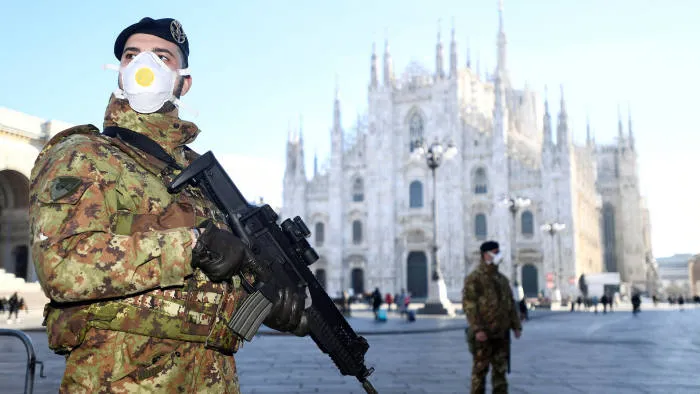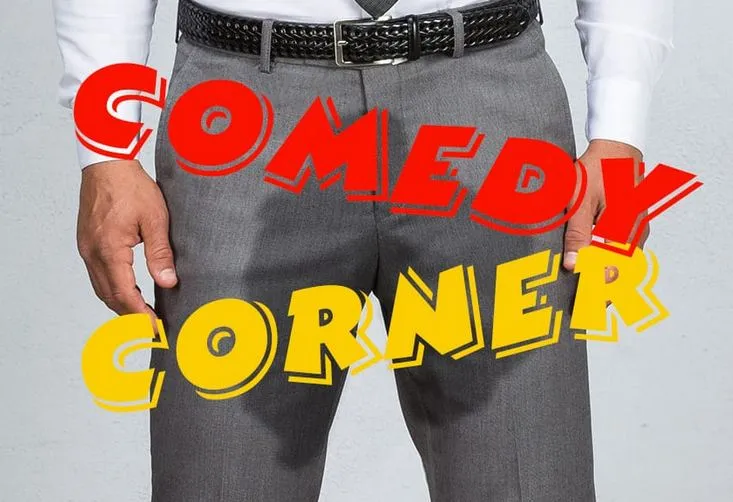Table of Contents
As I write, the global death toll attributed to Covid-19 approaches 50,000. The Lancet puts the annual global death toll from flu in the year 2017 at between 250,000 and 500,000. [Editor’s note: COVID-19 has a higher fatality rate than seasonal influenza and is more contagious.]
We’ve become a country run on emotions. So I’m going to come out and say it. The Emergency Powers Act and ensuing lockdown which places the citizens of New Zealand under effective house arrest is a moral and constitutional outrage, and we ought to be highly aggrieved that our nation hasn’t handled this more competently and more rationally.
Those of a conservative mindset might have some difficulty arriving at this position because unlike libertarians we do not believe that a nation can comprise only atomistic individuals in free pursuit of their desires. Rather, we owe an obligation to the body politic and accede to the power of the sovereign state in order both to avoid anarchy and to enjoy the benefits of living with the freedoms afforded by a Western liberal democracy.
It is out of a sense of obligation to the nation and to our fellows, that thinking people have accepted the current tyranny. Unthinking people, fuelled by stories in the legacy media and by a hysterical political narrative, have done so out of a growing sense of fear. Not a concern for others as the Prime Minister’s messaging might have us believe, but fear. And I’m sure we will be looking much more carefully in future at the corruption of the meaning given to the word “kindness” by Miss Ardern and others on the woke political left.
If we look carefully into the threat posed by coronavirus, and see the effects that universal house arrest is having – firstly on the population and civil society, and secondly on the economy – we must eventually come to the view that the State of Emergency is at best misguided and at worst a fraud.
It appears that the effects of coronavirus on New Zealand will be no worse than seasonal flu.
[Editor’s note: I do not believe that comment is an accurate reflection of the facts. New Zealand could well be in the calm before the storm and what has happened in Italy and other countries is clearly not the same as ordinary flu.]
Our disturbing direction of travel – the imposition of martial law, the creation of a Police State (with the Police being given extraordinary powers including the power to enter private property at will), the arresting of nearly all economic and social activity – is the biggest event in our history. If our parliamentary democracy isn’t dead then it’s on life support without a ventilator because not one MP to my knowledge has questioned the need to do this. Where was the debate, where were the facts and where is the science for that matter? We have never before done this to ourselves, even when we have been on a war footing.
MMP has seriously weakened our parliamentary democracy, but we still have an official Opposition. Why is Her Majesty’s Loyal Opposition not putting the case? Why on earth did they allow us to suspend parliament? The supposed value of MMP (we are told – we may not believe it) is that it allows smaller and more diverse groups to find a voice. Where is that dissenting voice? It’s shameful that so few have spoken up.
The debate we should have had (but didn’t) revolves around what other courses of action were open to us. When Covid-19 was first detected overseas could we not have considered closing our borders – as Singapore did? That would have decimated certain industries (such as the tourism sector, to which selective relief could have been applied) but not the whole economy. What would have been the effects of remaining open but isolating the vulnerable? Or could we not have faced it like men, as we do in times of war, and asked every citizen to do his or her duty?
Having handed unbridled power (to use Geoffrey Palmer’s term) to a socialist government which many of us do not trust, what will be the eventual cost? Covid-19 aside, we can expect around 3,000 people to die per month in New Zealand as part of the natural death rate. What do we say to those who will spend the final weeks of their life under house arrest? What do we say to the elderly whose lives are shortened by having their freedom curtailed? What is the cost of lost education to the young? What do we say to business owners whose businesses may never re-open? What do we say to future generations who will face higher taxes long into the future as a result of increased government borrowing? What do we say to those who are now joining the ranks of the unemployed? What will be the effects of the future wave of inflation which is about to be unleashed?
As to the cause of this unprecedented situation, the Western world has been caught in an epidemic, not of disease but of middle-class panic. People who have never been healthier or better fed, who have lived lives of abundance, have stared into the headlights of the oncoming virus and been terrified by their own mortality.
Boris Johnson was undoubtedly spooked into lockdown by the same type of academics who paralysed Britain with Project Fear, delaying Brexit by instilling political paralysis. As the leader of the country which invented parliamentary democracy, he has taken a hugely regressive step. Italy, having vacillated between fascism and hard-left socialism for much of the Twentieth Century, has moved closer to its true despotic nature. France has shown that it loves to tie the lives of its citizens up in bureaucracy and that the French nature is inherently socialist.
Sweden, which has prudently removed decision-making around public health from the political realm, remains open. Asia is open for business. Singapore has closed its borders but remains largely ‘open’ within. Interestingly, Singapore and Hong Kong employed very different policies to fight the disease but yielded similar results. Japan and South Korea are carrying on largely as normal.
More to the point, the People’s Republic of China says that it is recovering – whether this is true or not is hard to tell – and is resetting its economy to ’normal’ mode. We, meanwhile, are fulminating under house arrest.
Of this we can be sure: our government will be going to enormous efforts to make the risk seem real, the numbers stack up, and their actions appear justified. Once this is over, nothing less than a Royal Commission of Inquiry will be required to ascertain whether they were right.
If you enjoyed this BFD article please consider sharing it with your friends.









